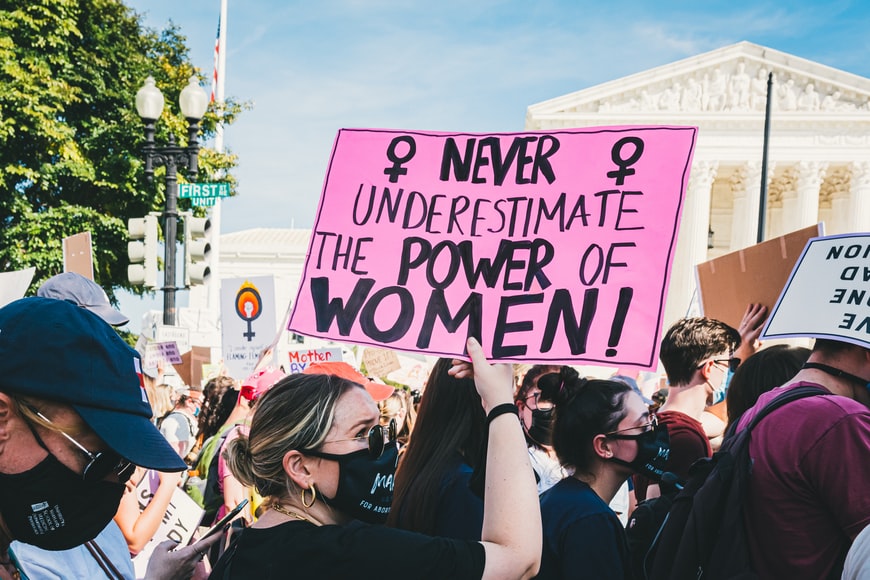
In light of Emily Ratajkowski’s new book, Comment Editor Ffion Hâf explores the harmful sexualisation and commodification of women’s bodies in the media and beyond
In her recently published book ‘My Body,’ Emily Ratajkowski opens up about how her success came at the cost of giving other people complete control over her body and its image. She admits to ‘mastering the art of disassociating from uncomfortable situations with photographers […] and other men to remain in control,’ however, the questions lie: where do we draw the line? Why is it that success is often largely dependent on how men perceive women? How much control of her own body did she truly have? Although not all of us can relate to the specific experiences of a model, I am sure most women can agree that most of the time it feels like you have been put on display for others to judge.
We often lack compassion for women who we feel have ‘asked’ for this kind of attention, some might even argue that they have over-sexualised themselves and are to blame. For example, on the set of the music video for ‘Blurred Lines,’ Robin Thicke groped Ratajkowski’s bare breast from behind during filming. Whilst she did consent to be in the video, she did not agree to sexual assault.
“Whilst she did consent to be in the video, she did not agree to sexual assault
The video featured her and two other half-naked women, whilst of course, the men remained fully clothed. This video once again highlights the notion that vanity and beauty are what women are expected to bring to the table. Whilst the director argues that she intended ‘for the video to subvert power dynamics, placing the men in an inferior position,’ in reality, it compromises any sense of empowerment for the women early on in the video, and Thicke’s actions ‘reminded everyone on set that we women weren’t actually in charge.’ Yet again a woman is found compromising her body and her dignity at the hands of a man. Whilst at a glance it may seem like it was a chance for a woman to embrace her sexuality, it was in fact degrading and misogynistic. As a model, she was victimised by those in power who used her body to sell their ideas or products. Rather than remaining a part of her, her body becomes a commodity and a means of marketing, and thus she loses all sense of control of what belongs to her.
“It compromises any sense of empowerment
The sexualisation of women’s bodies in the media is nauseating; everything about the female form, especially in the media, is now being catered to the male gaze. Because of this, society, specifically those with positions of power, believe that they can also control women’s bodies. Women are not given agency over their sexuality – if we are not the ideal standard of a male’s desires then we are looked down on. If we are too ‘sexy’, then we are mocked and judged solely upon appearances, and if we are too ‘plain’ then how are we ever to expect a male’s attention? (Because apparently, that is our main aim). Whatever we do in attempts to take control of our images and sexuality is shunned.
Women’s bodies hold so much power, yet we give them little credit; they in themselves are political. Our agency has been subject to male control for far too long, the notion of body politics highlights the lack of space made for women and their bodies. From the right to take control over our fertility, to issues of consent, many barriers are put in place to restrict women’s rights to their own lives. The diversity of women’s issues brings us back to the discussion of the #MeToo movement, in that so many women with varied backgrounds share similar experiences of this sexist behaviour. This highlights the notion that there is no right way to avoid sexual harassment, therefore instead of demanding impossible standards from women, we should expect more from society.
“Women’s bodies hold so much power, yet we give them little credit
The sexualisation of the female body and the lack of agency given to women is how the powerful keep their power. This prevalent patriarchy within society continues to repress women in everyday life and the media. However, we are so much more than dispensable items to be marketed, we are valid individuals with feelings, emotions and deserve basic human rights. Whilst there may not be a simple solution to the matter of taking back what is rightfully ours, I believe a good place to start is closest to home, with ourselves. At the end of the day, the notion of taking back agency is more about women than it is about men. It is about realising self-worth. We are worthy of success, of sexual liberation, and of owning everything that makes us who we are.
Read More From Comment:
Body Shaming is Never Okay, and The Consequences Can Be Life Altering

Comments